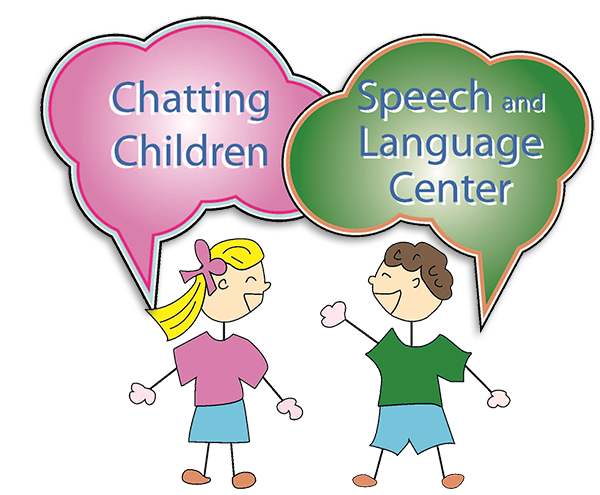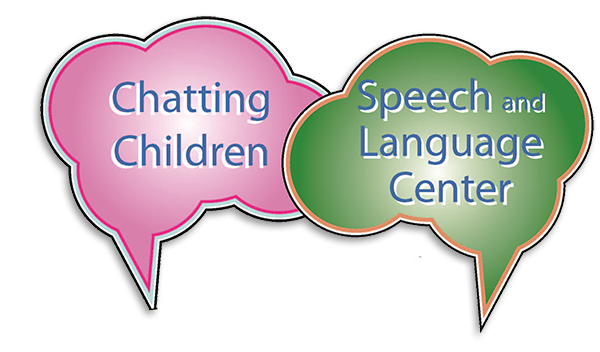8 Jan · Chatting Children · No Comments
BACK TO SCHOOL AND SPEECH THERAPY – TO TELL OR NOT TO TELL?
Although this is a very personal decision, I am a huge proponent of collaboration. Collaboration between parents, educators, and the child’s therapist(s) can be the key to effective communication and academic success …
READ MORE8 Jan · Chatting Children · No Comments
MORE IPAD APPS FOR SPEECH AND LANGUAGE DEVELOPMENT
My column on iPad apps was a popular one! Apps can be a great way to work on a variety of speech and language skills. As always, I encourage play and social interactions more than technology; however …
READ MORE8 Jan · Chatting Children · No Comments
WHAT IS APRAXIA?
Apraxia is a neurological motor speech impairment. A child with apraxia knows what they want to say but there is a breakdown in the transmission of the message from the brain to the mouth …
READ MORE8 Jan · Chatting Children · No Comments
ADHD AND LANGUAGE IMPAIRMENTS
Many children diagnosed with attention deficit hyperactivity disorder (ADHD) or attention deficit disorder (ADD) manifest language, auditory processing and/or social language difficulties …
READ MORE8 Jan · Chatting Children · No Comments
SOCIAL SKILLS EXPECTATIONS
Children with strong social skills are able to successfully interact with others. They have the tools needed for effective interpersonal functioning and have learned proper social skills through observation and experience …
READ MORE8 Jan · Chatting Children · No Comments
‘TIS THE SEASON… FOR TOYS AND GAMES
Game night is my favorite night… Playing games is such a wonderful way to improve children’s comprehension of language, verbal language skills, and basic pragmatic skills …
READ MORE8 Jan · Chatting Children · No Comments
THAT TRICKY “TH” SOUND!
Speech sound acquisition is different in all children. With that being said, however, at least 50% of typically developing 4 year olds have all but two sounds that they can produce correctly …
READ MORE8 Jan · Chatting Children · No Comments
LISP OR TYPICAL DEVELOPMENT?
A lisp refers to an inability to place one’s tongue in the correct location for accurate production of speech sounds. The most common type of lisp is a frontal lisp …
READ MORE8 Jan · Chatting Children · No Comments
BOOKS, BOOKS, AND MORE BOOKS
Reading books is a perfect way to work on both receptive and expressive language skills. Although it is very tempting to simply read a book to your child, take an extra few minutes to talk about each picture on the page …
READ MORE7 Jan · Chatting Children · No Comments
IPAD APPS FOR SPEECH AND LANGUAGE DEVELOPMENT
The iPad is a wonderful tool and yes, there are many apps that we use from time to time with our clients. I am a huge advocate for working on language and speech through board games and play but there are certainly times when the iPad has its advantages …
READ MORE7 Jan · Chatting Children · No Comments
STUTTERING… SHOULD I BE WORRIED?
Stuttering can be very worrisome for parents, especially when they notice their children becoming frustrated because they can’t “get their words out”. What most parents don’t realize is …
READ MORE7 Jan · Chatting Children · No Comments
DOES MY CHILD HAVE AUTISM?
Children are who suffer from Autism Spectrum Disorder (ASD) demonstrate many of the following characteristics. If your child is demonstrating any of these behaviors…
READ MORE5 Dec · Chatting Children · No Comments
SPEAKING IN SENTENCES
At 24 months of age, children should have a vocabulary of 50-100 words and should be producing two-three word phrases. At this stage, a child’s vocabulary will consist mostly of nouns but …
READ MORE1 Jan · Chatting Children · No Comments
DEVELOPING THE R SOUND
This is a question that parents frequently ask me. /r/ is one of the most difficult sounds to produce in the English language. It is a sound that requires strength and control of all articulators (e.g., jaw, tongue and lips) …
READ MORE

Recent Comments